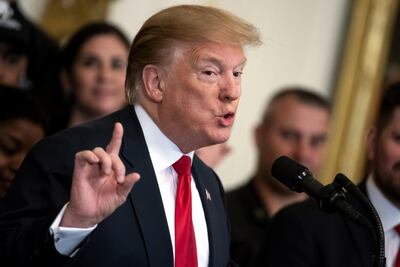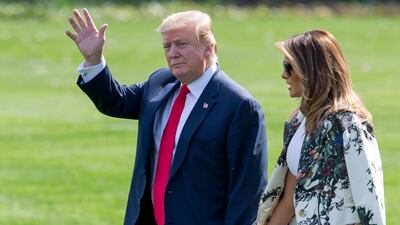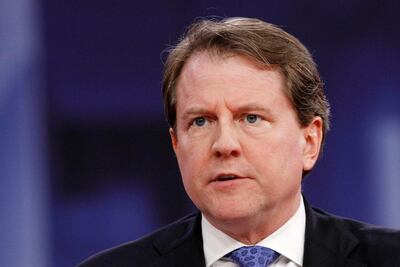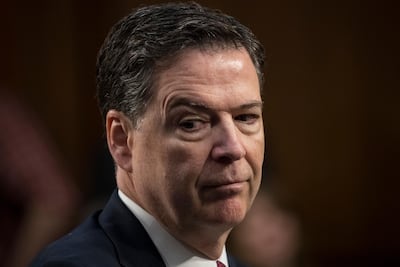At nearly 500 pages long, the report by Special Counsel Robert Mueller is packed with revelations both big and small. It might not have been the smoking gun that President Donald Trump's critics might have hoped for but Democrats may still use it as the basis to try for impeachment.
If you don't have time to read the full report, here's what you need to know:
Did Russia interfere in the election?
Mr Mueller found sweeping Russian efforts to interfere in the 2016 presidential elections, including numerous contacts with the Trump campaign and extensive social media programme. Some 200 of the reports nearly 500 pages were devoted to these methods and the links between them and US persons and found that they were all aimed at electing Donald Trump to the White House.
Did Trump collude with Russia?

While it did not establish strong evidence that any American conspired with Russian efforts to interfere in the election, it did say that Mr Trump’s team "expected it would benefit electorally from information stolen and released through Russian efforts".
"While the investigation identified numerous links between individuals with ties to the Russian government and individuals associated with the Trump campaign, the evidence was not sufficient to support criminal charges,” the report said.
Did Trump obstruct justice?
Mr Trump and his allies have again and again repeated that the report found no collusion and no obstruction, but that’s not strictly true.
Mr Mueller found at least 10 instances of possible obstruction of justice and clearly spelt out his view, saying: If we had confidence after a thorough investigation of the facts that the President clearly did not commit obstruction of justice, we would so state. Based on the facts and the applicable legal standards, however, we are unable to reach that judgment.”
Five Trump campaign officials have since been found or pled guilty to lying to FBI investigators and another charged with lying to Congress.
While not necessarily obstruction, on at least 37 occasions Mr Trump replied "I do not recall" or "I do not remember" in his written answers to Mr Mueller's questions.
While Mr Mueller won’t be issuing more indictments, he suggested that “Congress has authority to prohibit a president’s corrupt use of his authority in order to protect the integrity of the administration of justice.”
Did Mr Trump try and stop Mueller’s investigation?
Mr Trump didn't take the news well when he heard Mr Mueller had been appointed. "Oh my God. This is terrible. This is the end of my Presidency," the report quotes him as saying according to testimony from whitenesses. If that is true is still up in the air.
But Mr Mueller found that Mr Trump did try to have him fired and the investigation stopped. In June 2017, the president called White House counsel Donald McGahn and ordered him to end the investigation.
On a second call, Mr McGahn said Mr Trump tried again. "Call [Deputy Attorney General Rod Rosenstein], tell Rod that Mueller has conflicts and can't be the Special Counsel", and "Mueller has to go" and "Call me back when you do it."
Mr McGhan, however, threatened to quit rather than bow to the president’s demands. When reports of the exchange surfaced in January 2018, a lawyer for the White House asked Mr McGhan to publically deny the claims. He refused to do that as well. He left the White House in October 2018.
The spark that started the investigation
When then FBI Director James Comey was fired by the president, pressure from Democrats for an investigation into the election mounted, especially on then acting Attorney General Rod Rosenstein whose memo backing the intelligence head’s dismissal was key. Then Senate Minority Leader Chuck Schumer said Mr Rosenstein said he would appoint a special counsel “if required” and shortly after the Justice Department official followed through, citing “the public interest for me to exercise my authority and appoint a Special Counsel to assume responsibility for this matter.”
So what did Mr Mueller find about Mr Comey’s firing? Despite suspicion by some that it was to do with possible collusion, “The evidence does not establish that the termination of Comey was designed to cover up a conspiracy between the Trump campaign and Russia.”



